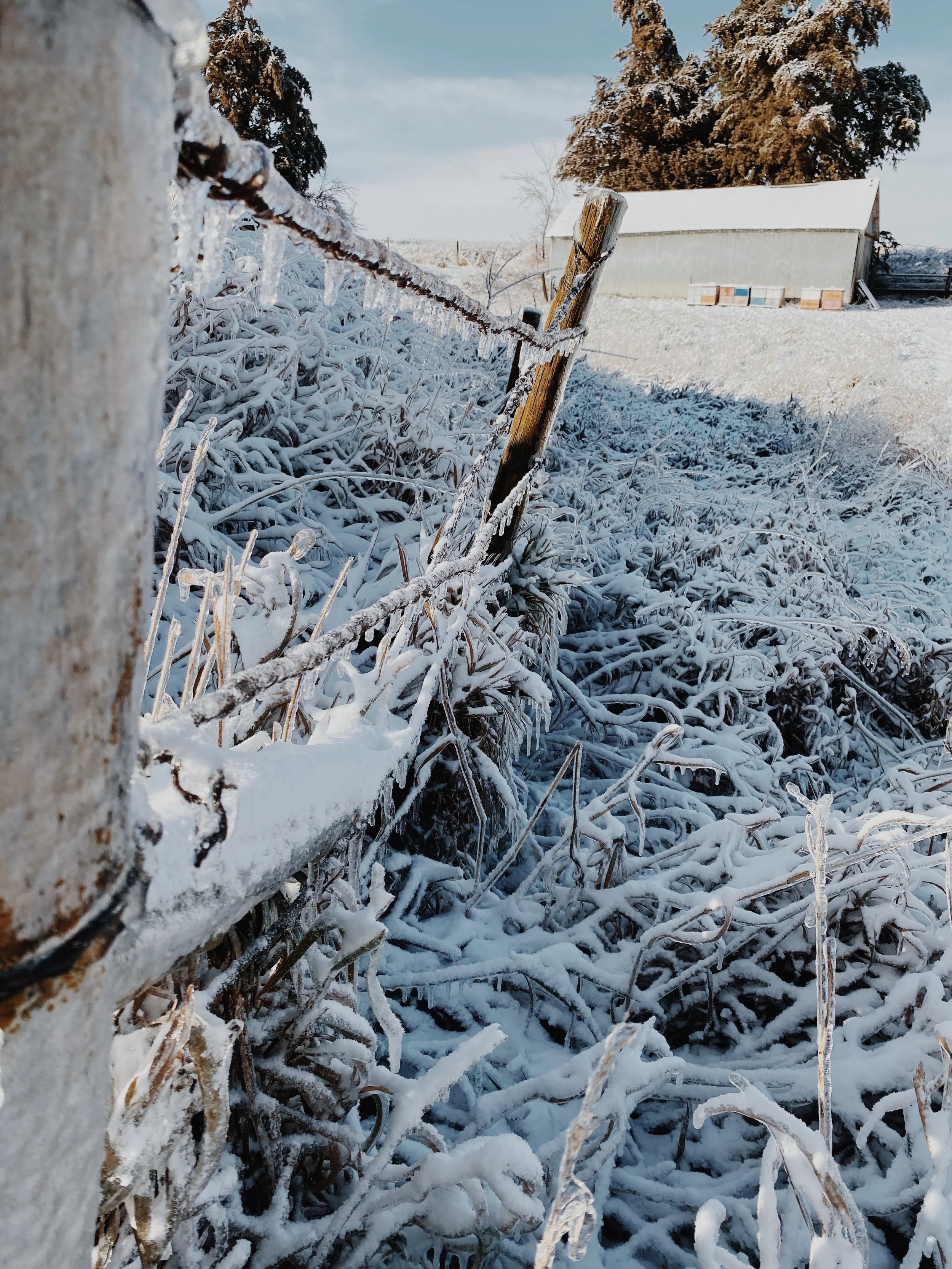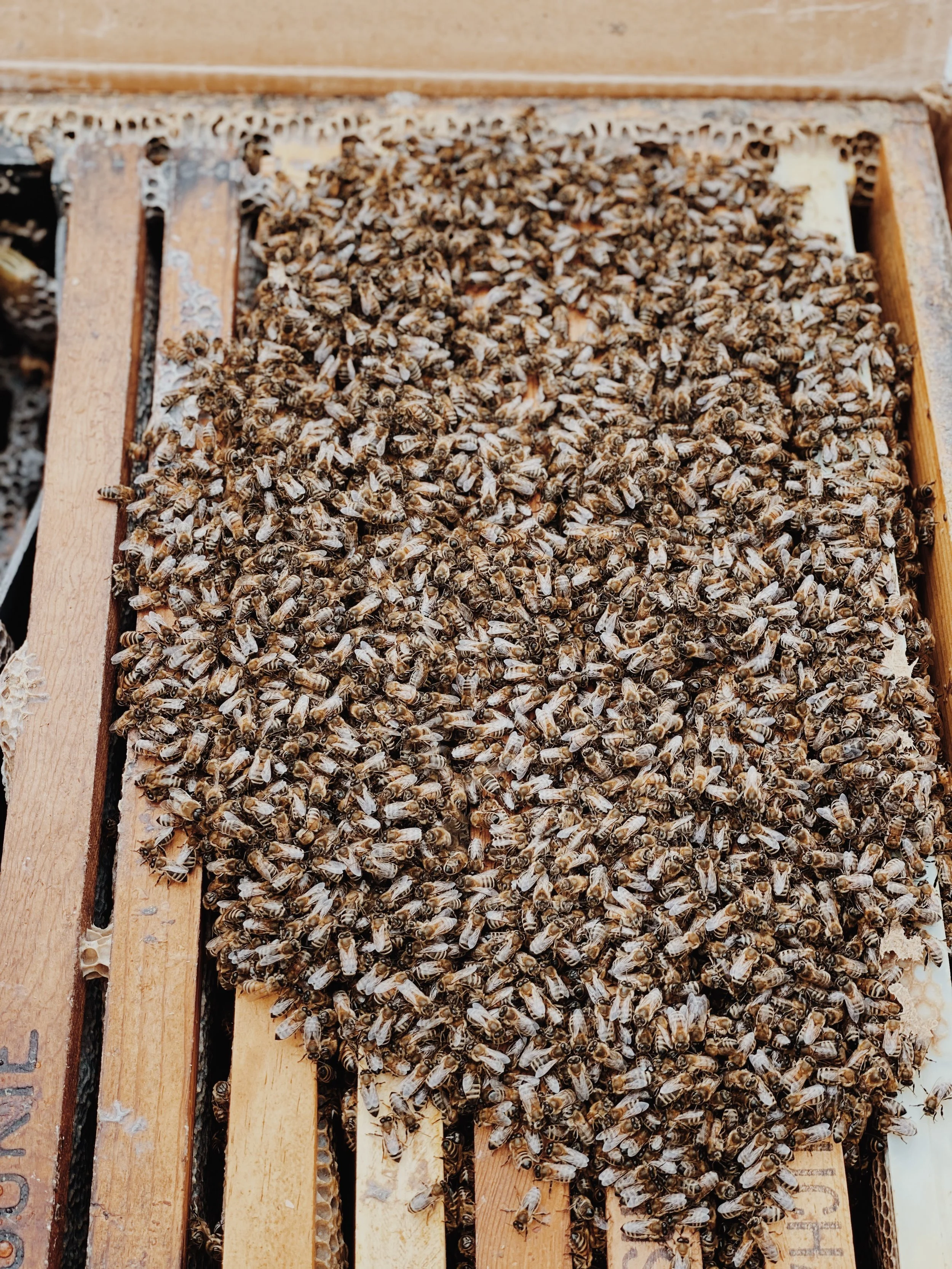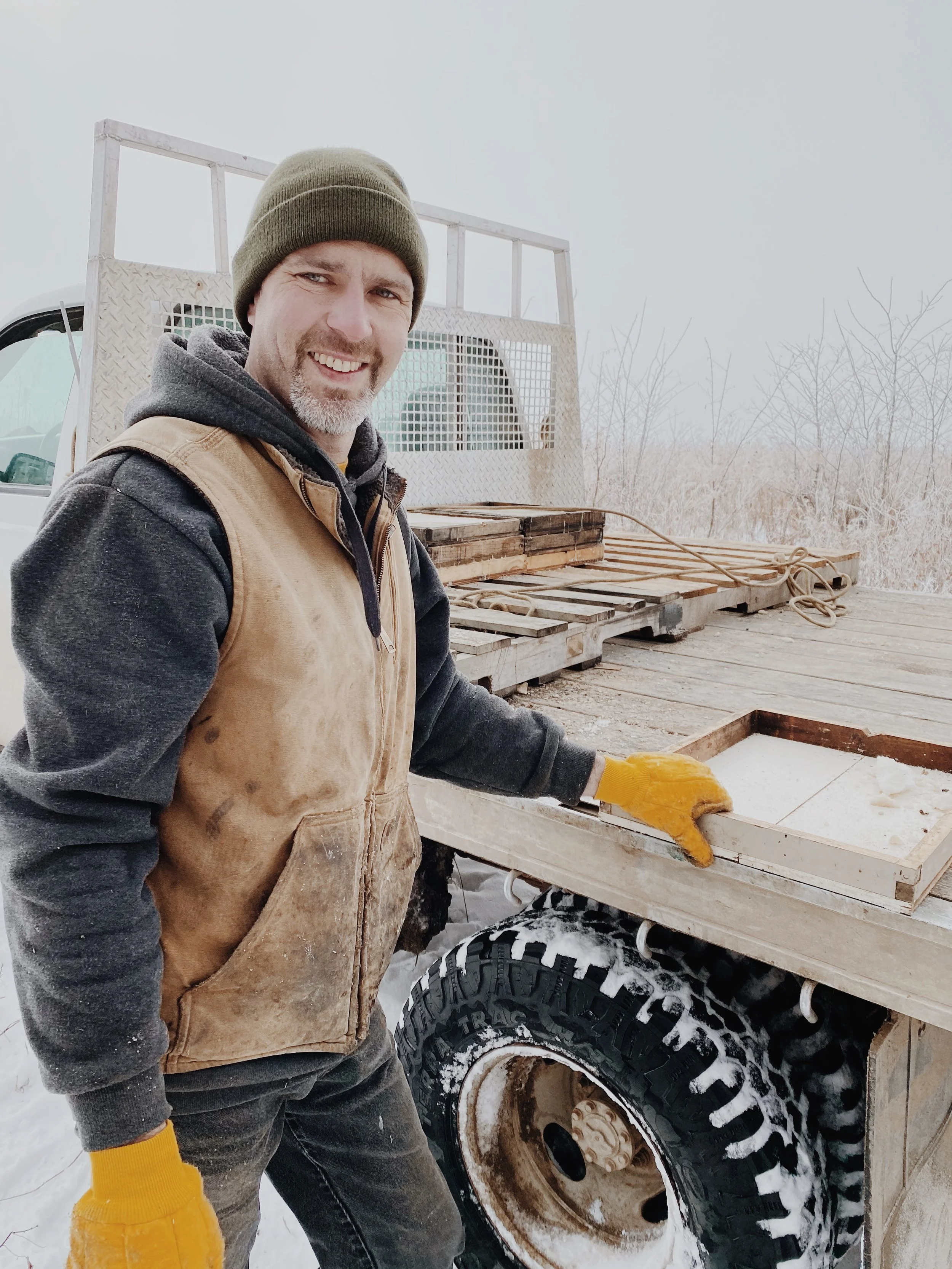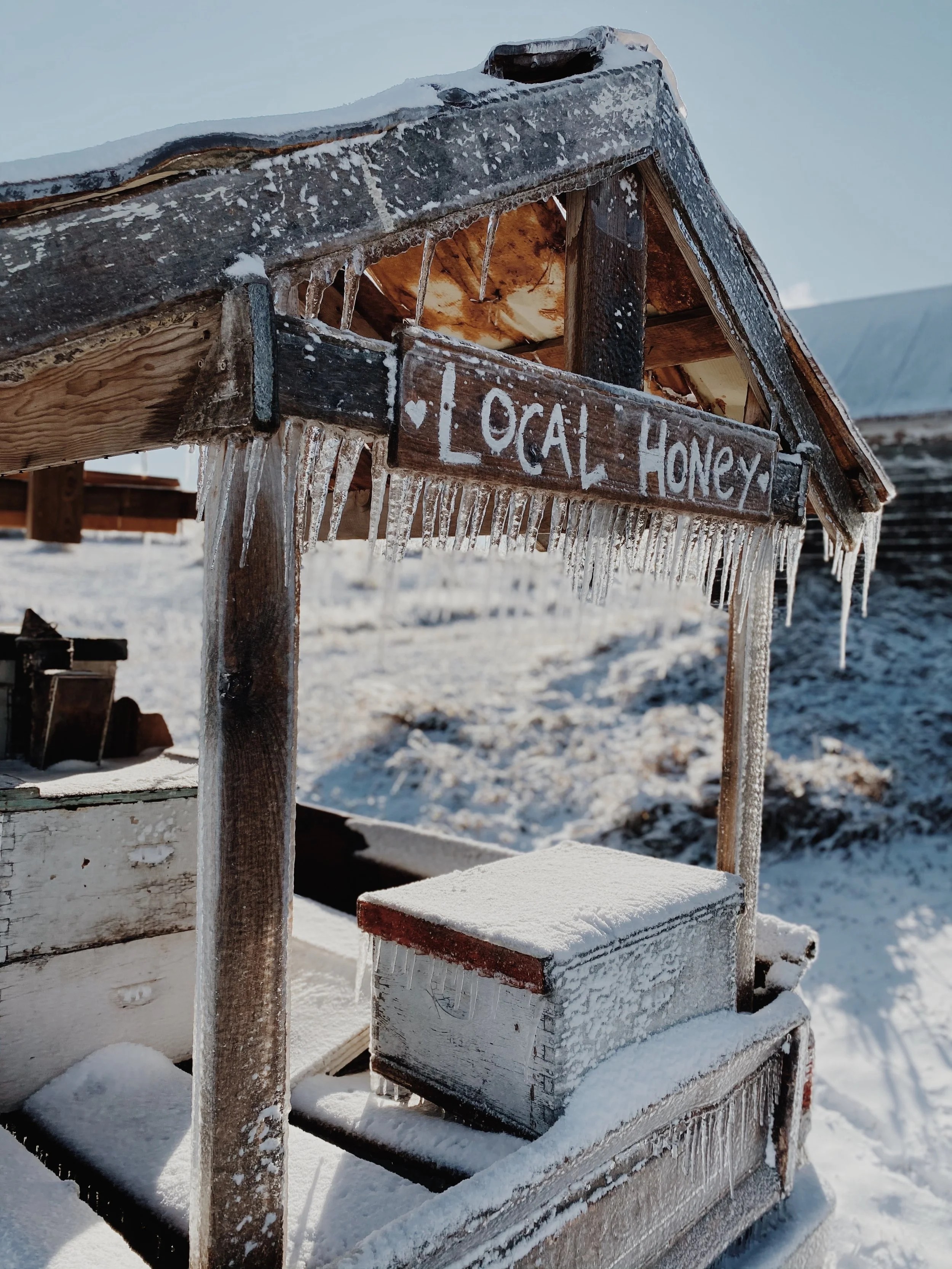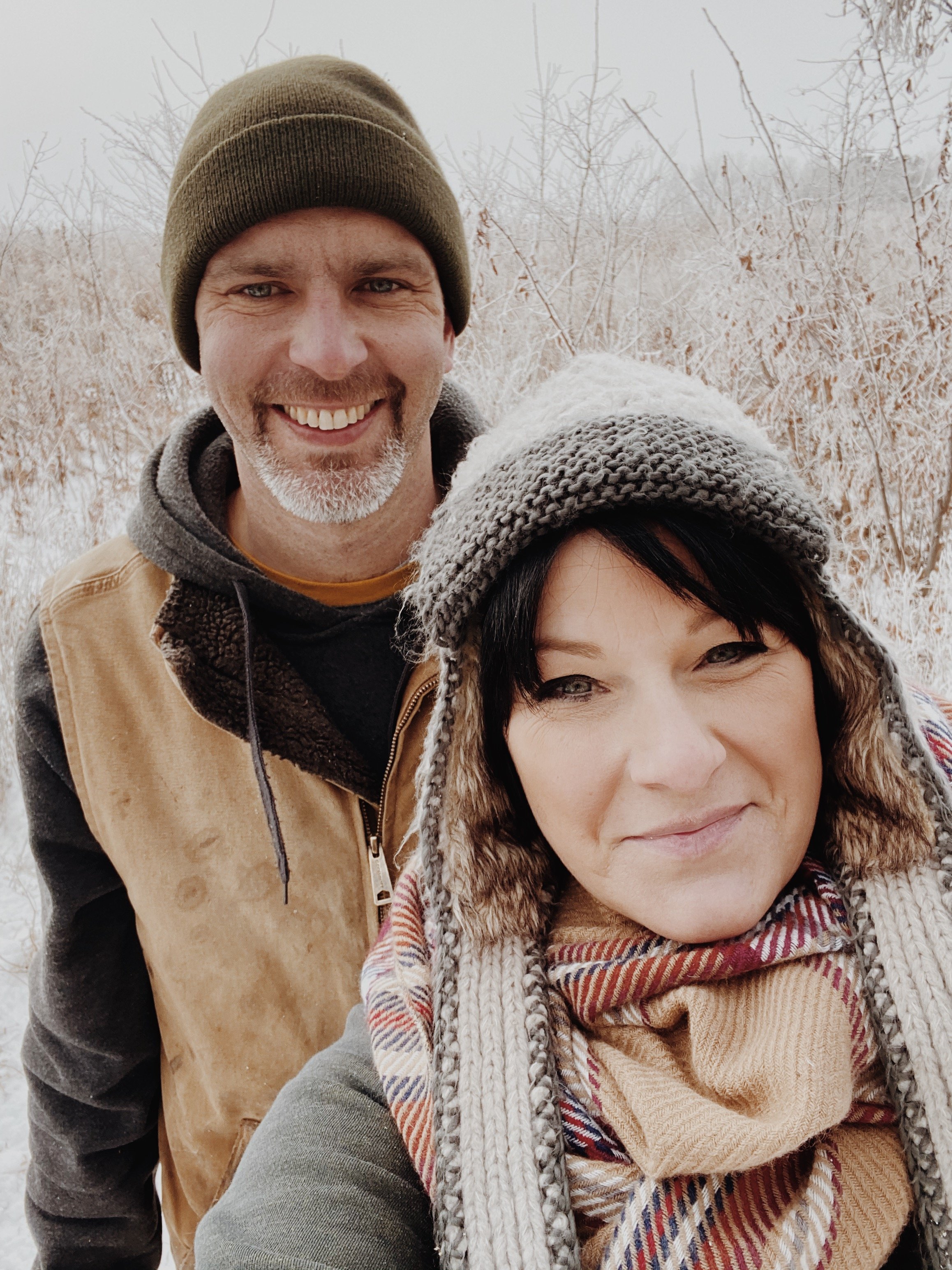Winter & HoneyBees
As the days grow shorter and the temperatures drop, nature takes a pause—and so do honeybees. While it might seem like winter is a dormant time for the hive, this season plays a crucial role in the health and survival of honeybee colonies. Let’s take a closer look at what happens inside the hive during these chilly months and why winter is so important for honeybees.
The Winter Cluster: Nature’s Survival Strategy
When the cold sets in, honeybees don’t hibernate like some animals do. Instead, they form what’s called a “winter cluster.” We like to call this the “Honeybee Huddle”. The bees gather tightly together around their queen and the remaining honey stores, vibrating their wings to generate heat. This cluster is their lifeline, keeping the colony alive and warm even as temperatures outside plummet.
The survival of the hive depends on teamwork. Worker bees rotate positions, with those on the outside moving inward to warm up, while others take their place. This constant movement ensures that no single bee stays in the cold for too long.
Honey Stores: The Fuel for Winter Survival
The honey that bees worked so hard to produce during spring and summer is more than just a sweet treat—it’s their source of energy during the winter. Honey provides the calories they need to maintain warmth and sustain the hive until flowers bloom again in spring.
As beekeepers, we leave enough honey for the bees to survive the winter. This balance is key to keeping our colonies healthy and thriving.
A Time for Rest and Rejuvenation
Winter is a time of rest for honeybees. With fewer demands for foraging and a reduced need for brood rearing (raising baby bees), the hive slows down its activity. This period of rest allows the bees to conserve energy and prepare for the busy months ahead.
Preparing for Spring
While winter may seem quiet, it’s a season of preparation. As temperatures start to rise, the queen will begin laying eggs again, ensuring the colony is ready to expand and forage once spring arrives. The bees that survive winter will become the foundation for the hive’s success in the new year.
How You Can Help Honeybees During Winter
Even though bees aren’t buzzing around your garden in the winter, there are still ways you can support them:
Plant for pollinators: Start planning your spring garden with bee-friendly flowers that will bloom early in the season.
Buy local honey: Supporting local beekeepers helps ensure that honeybees have the resources they need to survive.
Avoid pesticides: Reducing pesticide use in your garden creates a safer environment for pollinators.
At Fat Head Honey, we marvel at the resilience of our honeybees during the winter months. It’s a time for the colony to rest, refuel, and prepare for the sweet work of spring. As stewards of these incredible creatures, we’re reminded of the importance of balance and patience—both in the hive and in life.
What questions do you have about honeybees in winter? We’d love to connect!

